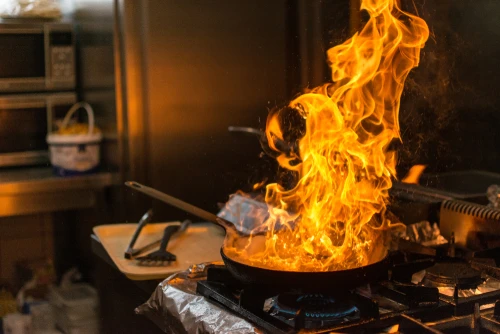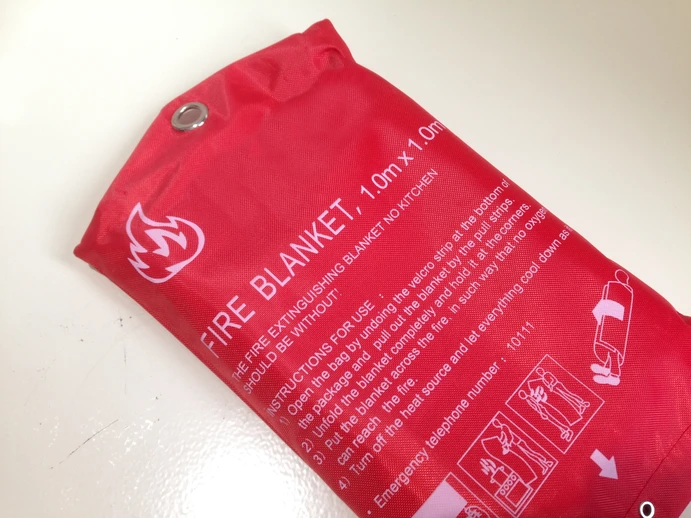A fire breaking out on a boat is a true nightmare for sailors. On Saturday a fire that swept through Marina Kaštela in Croatia, brought this horror to reality. Fortunately, fires rarely occur in marinas but they do more often happen at sea.
The crew then find themselves is an extremely dangerous situation with a real risk of death, and if the fire is not extinguished in time the boat can burn to a cinder.
The causes are often regrettable and entirely avoidable. So what are they?
Ship's galley
Statistically, most fires occur in the galley. And these are usually due to minor incidents. The oil in the pan catches fire, a teatowel is clumsily thrown over the gas stove or a tea bag sets alight. Even a small flame is enough and thanks to the wind, a fire can begin to spread at an unexpected speed. Of course, the gas itself is also a threat. Unfortunately, gas inspections are not mandated by law and therefore aren’t often often carried out on privately owned boats. Just a small leak is enough to get it started.

Engine
Next after the galley is the drive system itself. Although the flash point of diesel is up to 220 °C, just 58 °C can ignite it, for example when diesel drips on a hot part of the exhaust. Just a single spark is enough. Generally, petrol engines pose a greater risk of fire, and the flash point of petrol is surprisingly low. Leaking fuel lines or carburetor gaskets can get us into problems. Of course, outboard tanks or poorly stored fuel canisters also pose a risk.
Electricity
The third greatest risk comes from electrical wiring. Especially if the system is outdated and/or a botched DIY job. An overvoltage or system overload can easily occur. In addition, there is a much higher risk of corrosion on boats. A corroded cable has greater resistance, heats up easier and can easily catch fire.
Human error
The common causes of domestic fires are well known, such as unextinguished candles, a cigarette in bed, etc. Fortunately these statistically represent the least risk on board. However, in combination with alcohol, the chances of something going wrong significantly increase. If a fire does break out, we usually only have a moment to put it out before it spreads leading to fatal consequences. Therefore, great attention needs to be paid to prevention.

A fire is common, but not the only accident that can happen to you on a ship due to the human factor. Fortunately, these troubles can very often be prevented, especially with proper communication between the crew and diligence. Learn what to look out for.
How to prevent a fire on board:
- When picking up a boat, make sure you know where the fire extinguishers are located and what they are designed for. The fact that water is all around us does not mean that we can put out everything with it.
- Check your electrical wiring regularly on your own boat.
- Always make sure that the engine cooling system works.
- Make sure that the fuel is stored correctly.
- If you have your own boat, have the gas line checked every 2 years.
- Never leave anything unattended on the stove.
- When not cooking, switch off the gas supply at the tap.
- Before cooking, make sure that no napkins, towels or other flammable materials are lying within reach.
- In the event of a fire in the kitchen, use a fire blanket (usually within reach of the stove) and UNDER NO CIRCUMSTANCES extinguish burning oil with water.
- Do not smoke below deck.
- Sailing on a boat is romantic enough in itself so leave your candles at home.
